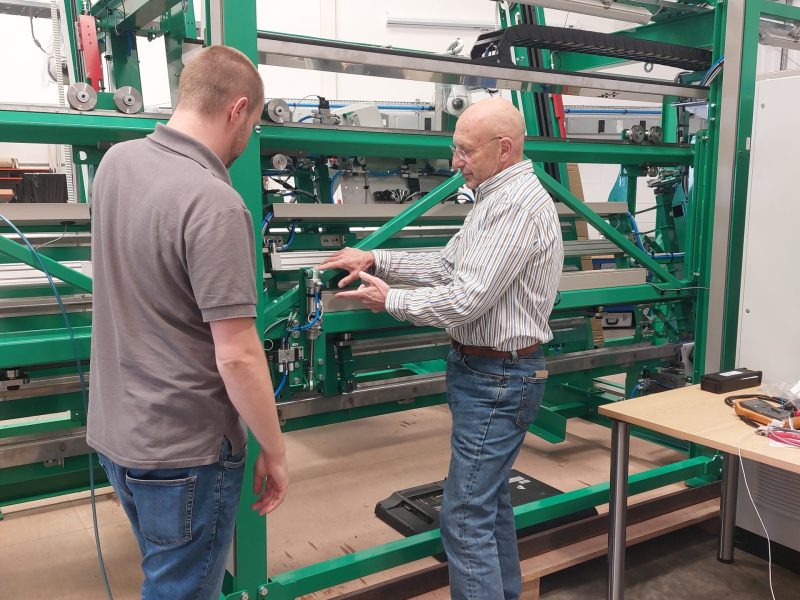Recycling week
Bennett Engineering are true advocates of ensuring materials are not wasted when we approach every design and manufacturing project. As it’s Recycle Week with a theme of ‘Rescue Me’ we’ve highlighted some of the UK’s statistics and the work we’ve completed with innovators in the recycling sector.
Recycle Week is aimed at the household waste that’s not recycled with an estimate of one billion items sent to landfill every year that could be recycled. With yogurt pots topping the list of items that simply aren’t recycled there’s also some trickier items that need to be recycled such as electronic equipment.
As we move deeper into the 21st century, the need for innovative recycling solutions has never been greater. Climate change, environmental degradation, and resource scarcity are pressing global concerns. Recycle Week is there to inspire individuals, businesses, and governments to rethink their waste strategies and explore sustainable practices.
The Current Recycling Dilemma
Despite the growing awareness around recycling, many countries face infrastructural and logistical barriers that prevent effective waste management. Traditional recycling plants are often large, expensive, and location-specific, making it hard for smaller communities or developing regions to set up recycling operations. On top of that, transportation costs, material sorting inefficiencies, and contamination issues complicate the process further.
The innovators looking for a catalyst for change
Bennett Engineering have a client who are looking to break these barriers by rethinking how recycling systems are built and implemented. The core idea is to use modular, portable technologies essentially, compact, highly efficient “factories in a box.” These systems are designed for easy setup, operation, and scalability, enabling recycling plants to be deployed quickly and effectively, anywhere they’re needed.
What is a Factory in a Box?
A Factory in a Box (FIAB) refers to a pre-engineered, modular, and often portable production system that can be packed into standard shipping containers. This approach allows for factories that are smaller, mobile, and much more adaptable than traditional setups. FIABs are a game-changer for recycling because they can be customised to handle specific types of waste, operate in diverse environments, and be deployed in hard-to-reach areas.
Value engineering a Factory in a Box for Recycling
Our client had a prototype of a factory in a box designed to handle recycling of a specific household item; the prototype, whilst offering an innovative recycling ability, was very hard to assemble, impossible to keep clean and had some functionality that was slightly unsafe. They need a design engineering consultant to help them make the essential improvements to get their factory in a box to market.
What did the project involve?
- The standardisation of items like bolts
- The redesign of the space for better cleaning and easier access for maintenance
- Far faster to assemble
- Reduction in material usage of about X%
- Simplification of process of moving the item through the stations
Essentially Bennett Engineering removed the complexity of the original design that had not been as successful as hoped during commissioning and would not be financially viable for the market the innovator was looking to serve.
The Future of Recycling with Factories in a Box
The idea of “factories in a box” is still emerging, but it has the potential to revolutionise the recycling industry. As the global waste crisis continues to grow, decentralised, modular solutions like these offer a practical way to handle waste more sustainably. With ongoing advancements these compact, efficient, and scalable factories could soon become essential tools for communities worldwide.
The future of recycling could involve a network of smaller, localised factories rather than centralised megafactories. This decentralisation would allow recycling operations to be deployed quickly in response to environmental needs, from cleaning up plastic-choked rivers to managing waste in disaster-stricken areas.
During this Recycle Week, it’s time to think beyond traditional recycling plants. By combining modular design, smart automation, and sustainable energy solutions, it is possible to move towards a more circular economy, where waste is transformed into valuable resources. That is certainly what Bennett Engineering have seen from the innovators we’ve worked with who now have an effective recycling plant that disassembles household electrical items ready for components to be reused or recycled properly.
As engineers who are fortunate to work with innovators and sustainability advocates, we have the tools to shape a greener future perhaps one factory in a box at a time.


